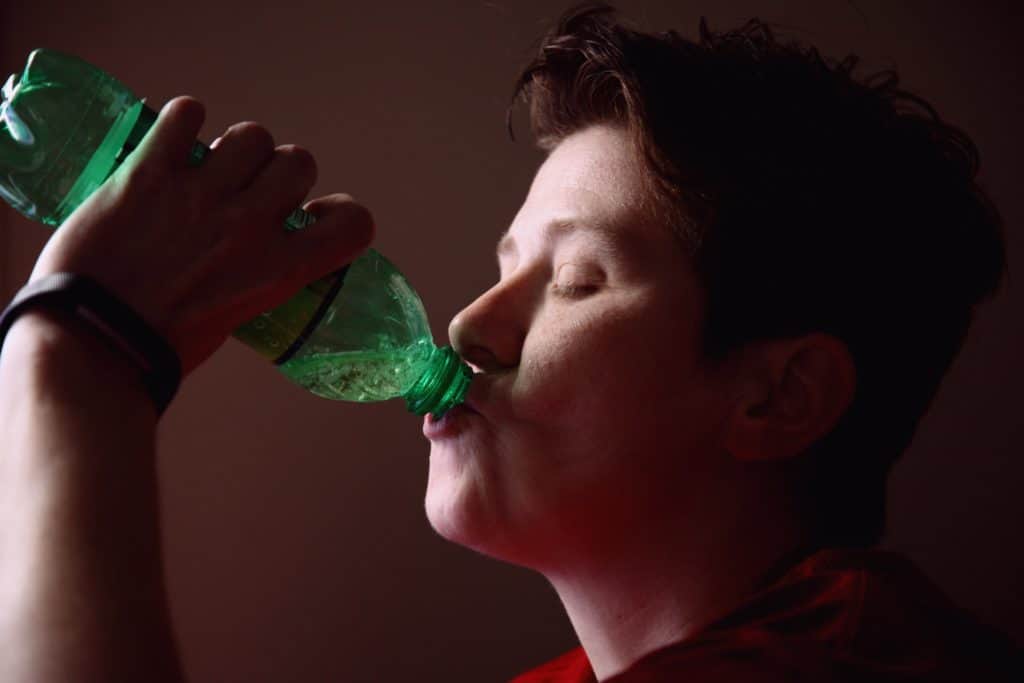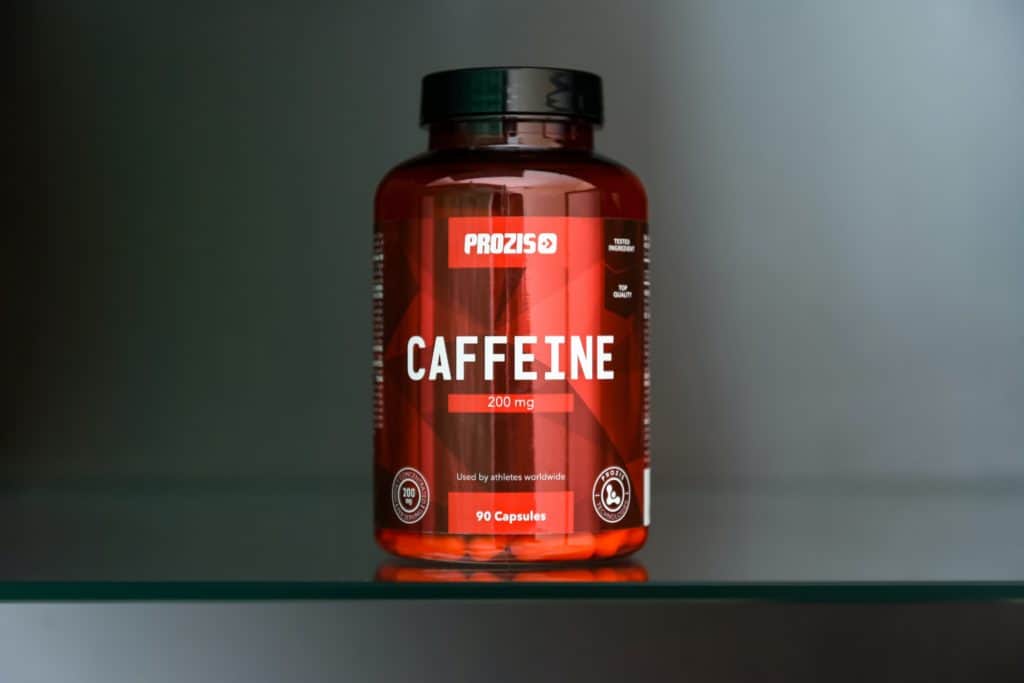Effects of Caffeine During Fitness Training
A little-known fact that the general public may not be aware of is that caffeine is actually classified as a drug. You probably won’t hear it spoken about in the same vein as other drugs because it is so commonly utilized in our favorite foods and beverages, coffee and sodas, for example.
Caffeine acts as a stimulant on the nervous system by binding certain receptors and blocking a chemical that the body produces more of during trauma and stress. In simpler terms, caffeine gives those who take it a boost of energy that allows them to push their body harder than they could’ve without it.
The effects of caffeine have been well documented and it is very clear that too much caffeine, just like any other substance we consume, is not good for a person long term. However, there is a split in how scientists feel about its usage for fitness training.
Some scientists are completely in favor of using caffeine to help assist in training but others believe that there are too many detrimental aspects for it to be promoted as “safe to use” for working out. While we wait for a more solid verdict about how they feel about the usage, we urge you to learn your body.
Listening to Your Body
In fitness training, it is pertinent that you pay close attention to your body, not just to see any gains or losses but also to know if anything is going wrong. Throughout this article, we will detail the effects of caffeine during fitness training, but it is up to you to choose to use it or not. The data can tell you great information but your body and the way it reacts is the best info that you can receive and adhere to. Going forward we will get into the different signs and symptoms to look out for that will help you diagnose if caffeine is affecting your body negatively or positively.
Persona
Using caffeine may help you with your fitness training but using Persona can help you with your life overall. Persona is an app that can help you whether you are a trainer or trainee. As the trainer, you can benefit from the hassle-free scheduling and the online store that you can create when you sign up.

This allows clients to book and pay without you having to facilitate the interaction. As the trainee not only do you get to benefit from the hassle-free scheduling and payment system but you can benefit from utilizing the app for banking. Most importantly the app is free to use for all parties and they have no plan to ever charge for their services.
Burning More Fat
We have already established that caffeine gives you the ability to exercise longer and harder which in turn allows you to burn more calories (fat). However, what isn’t known is that caffeine can also help burn more calories while at rest too. Caffeine gives your body a boost in noradrenaline that increases your metabolic rate thus burning calories while sleeping.
Also, the energy boost you receive helps activate the lipids in the fat cells so they can be used up for energy. Lastly, it can suppress your appetite by activating your sympathetic nervous system which turns on your fight-or-flight response and that keeps you from wanting to eat.
Faster Recovery
A large number of folk that takes fitness training seriously are very concerned with their recovery. A good way to increase the speed of your recovery is by ingesting caffeine. However, it is not just caffeine alone but with carbs as well. This combination can help increase the rate at which your glycogen (fuel stored in muscles) replenishes. The quicker your glycogen refuels equates to quicker overall muscle repair and recovery that allows you to go back into intense training.
Improved Aerobic Performance
It is recommended that if you are seeking assistance with endurance focused activities such as soccer or running track, you can drink a beverage with caffeine in it prior to your workout. Drinking before the workout will block your A1 receptor, responsible for resting tissues in various parts of your body, and can help you exercise for a longer amount of time.
If you are in a sport that requires endurance but also needs a lot of “short bursts of power” movements such as HIIT or football you’ll see most benefits from using caffeine less often. For example, instead of drinking a cup of coffee before every practice, just drink it before games to get better results.
Improved Anaerobic Performance
Research has shown a 200 to 600mg dose of caffeine can help you sprint faster and/or lift more weight. The drawback to this is the more you take a caffeine boost for this purpose the less effective it will become for you. Your body’s tolerance for it will rise and soon you will lose out on the ability to draw the energy you had before you started using caffeine. This process that occurs within your body is called caffeine dependence.
Caffeine Dependence
As it was previously stated, caffeine is classified as a drug, and just like with any drug there should be a form of regulation because your body can become dependent on it. Dependency on caffeine is dangerous due to the fact that your body will start to react negatively when without it. Something as small as a constant headache on days when you don’t have your daily dosage of caffeine is a sign that you may be suffering from caffeine dependence.

If you find yourself in a situation where you are not getting sleep or feeling headaches you should try cutting back on it slowly. Try taking a week or two off from putting the substance in your body and then get back to it slowly to see how it makes you feel. Another way to help yourself is to only intake caffeine when you need the energy boost the most. This means cutting back on casual caffeine intake throughout your day. For example, if you have a particularly strenuous workout ahead for the day consider consuming it an hour prior instead of throughout your day.
Most importantly, if you are feeling like you are suffering from caffeine dependence do not try to fight that dependence with more and more intake of that same substance. This can lead to very bad health issues.
Risks and Side Effects
We’ve covered the positives that come with caffeine usage however we would be remiss if we did not give you both sides of the coin. It was mentioned earlier that the substance had scientists split as far as how they felt about its usage long term. Here are some reasons why that is:
- Upset stomach – This is classified as the most common side effect that people experience.
- Insomnia and anxiety – Caffeine is normally used to help boost energy and help muscle recovery but sometimes it works against them. In particular, it may work against athletes that are using it for enhanced performance because that lack of sleep hinders muscle recovery.
- Caffeine overdose – It is possible to experience caffeine toxicity (overdose) if they consume too much of it. Though it is a very rare occurrence and usually happens by accident from a situation such as drinking too much of an energy drink or supplement. You must carefully follow the label instructions on caffeine products to avoid over consumption.
Dosage Recommendations/Facts for Caffeine Consumption
The 2020-2025 Dietary Guidelines for Americans have given us a lot of facts and recommendations that we should consider when consuming or thinking about consuming caffeine for different purposes. Listed below are some of their advice:
- Adults who consume caffeinated beverages such as coffee should not surpass 400 mgs of caffeine in a day.
- It is to be noted that a shot of espresso is typically 75 milligrams of caffeine and energy drinks can range from 47 to 163 milligrams per eight fluid ounces.
- The NCAA has actually banned high doses of caffeine for their athletes as it can be dangerous.
- It’s becoming widely recommended that people who are not currently consuming caffeine should not begin to do so.

Monitoring Your Health
Throughout this article, we have explained how caffeine works, the positive effects, the negative side effects, how doctors feel about caffeine, etc. All the information given was very pertinent and can give you a good sense of what is going on or will be going on with your body during caffeine consumption.
Most importantly, you need to track how you feel. If you are someone that is already indulging in caffeine usage for fitness training then you need to be monitoring your health week by week. When we say this it is not meant just for the activity in the gym but all aspects of your life.
Your appetite, sleep habits, energy levels, strength, and much more need to be watched carefully. Start a journal and detail your body before and after consumption for proper comparison. If you are experiencing issues in any avenue of your life it may be time to seek a change, whether it’s completely cutting out caffeine, significantly decreasing the intake, or seeing a doctor for professional advice.
If you are not someone that purposely trains with caffeine in your system but wishes to begin that process, we suggest the same. A journal can help you write and track how your body has reacted to certain amounts of caffeine and how much it has helped in comparison to before you began taking the substance.
Overall, stay up to date with the current scientific research regarding caffeine and make smart decisions for your fitness training and your body.